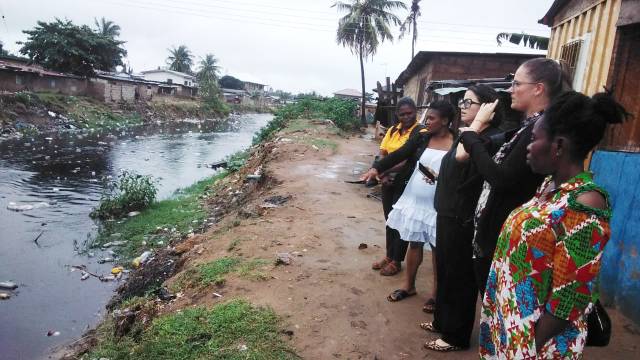You are here
The CDC Foundation Joins Global Partners in Observing World Drowning Prevention Day
Over the past decade, drowning has claimed the lives of more than 2.5 million people. It is the third leading cause of unintentional injury and represents a serious global health problem, with 90 percent of drowning deaths occurring in low- and middle-income countries.
In 2021, the World Health Organization declared July 25th World Drowning Prevention Day to bring awareness to drowning as a public health problem and promote lifesaving drowning prevention strategies. In recognition of World Drowning Prevention Day, the CDC Foundation is spotlighting our research efforts aimed at understanding the burden and circumstances of drowning in Ghana.
The CDC Foundation and Kwame Nkrumah University of Science and Technology, with technical assistance from the U.S. Centers for Disease Control and Prevention (CDC) and funding from Bloomberg Philanthropies, recently completed a groundbreaking study on drowning in Ghana. The study aimed to describe the burden and circumstances of both fatal and non-fatal drowning in Ghana and used a multi-pronged data collection process. Fatal drowning is defined as a drowning incident which results in death, and non-fatal drowning is defined as a drowning incident in which the person survives but may experience a range of outcomes from non-injury to serious injury.
Data collectors abstracted drowning cases from district-level police, mortuary and disaster management administrative records and worked with community health workers and respected leaders to identify drowning cases in communities. Data collectors conducted structured interviews with family members, friends and/or witnesses of drowning incidents, as well as focus group discussions with people disproportionately impacted by drowning, such as fisherfolk and others who live and work near bodies of water, to gain insight on the cultural and contextual factors of drowning, beliefs surrounding drowning and the feasibility and appropriateness of potential interventions. Over an eight-month period, data were collected in 52 out of 260 randomly selected districts, resulting in a nationally representative sample of Ghana’s population, geography and diversity of water bodies, a first of its kind in sub-Saharan Africa.
The CDC Foundation and CDC teams conducted numerous field monitoring visits to observe data collection, discuss experiences and challenges and provide technical assistance. These visits provided valuable first-hand insight into existing drowning risks, and hearing from community leaders about local understanding and perception of drowning further emphasized the importance of the study.
Data collection was completed in December 2022 and results were shared with the Ghana government and key stakeholders at a national dissemination meeting held in Accra in February 2023. Following the meeting, the project leadership team finalized a technical report, which will be used for further dissemination and community awareness and prevention efforts.
The next phase in drowning prevention in Ghana is just getting started and this World Drowning Prevention Day, the CDC Foundation reflects on this milestone and how this formative research can be used to inform future initiatives to prevent drowning in Ghana and elsewhere.

